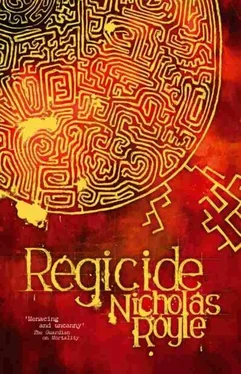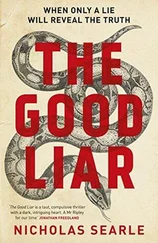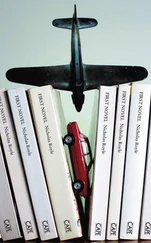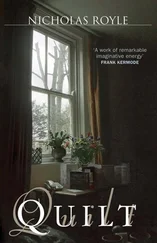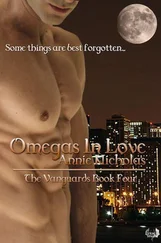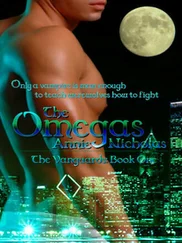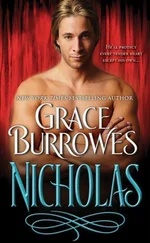‘I know you’ll enjoy it though,’ she said to me, passing me the plate of buttered malt loaf.
As I was putting my anorak on and my father was buttoning his trench coat I saw my mother mouth something at my father. He nodded and said, ‘I’ve got it.’ I looked at his coat and saw something bulky in the pocket. I had no idea what it was and I didn’t ask. My father put his trilby on, tilting it in the hall mirror, and we stepped outside into the still-warm evening.
‘Why do we need coats?’ I asked.
‘It might not stay warm where we’re going,’ my father said as he led the way to the bus stop. I thought about asking why we were going on the bus instead of in the car, but thought that, like with the bulky thing in my father’s coat pocket, it might be better not to ask. I didn’t want to spoil the surprise by finding out too early.
It was already quite late in the summer holidays and the sun was setting as we rode towards town on the 263 bus through the suburb where I was born and later past the end of the road where my father was born. I glanced at him and he looked down and smiled at me from under the brim of his hat, then looked back out of the window. I wondered what was going through his mind. His face looked calm. He was probably excited by the thought of where we were going and how much it would mean to me. But he must also have been plagued by thoughts of the underlying reason for making this trip. I had already sensed on our walking excursions in the Peaks that he was trying to cram into a few short months the activities a father and son might normally spread over several years.
I didn’t twig where we were going until we got off near Moss Side and walked down narrow terraced streets that soon were resounding to the cobble-slap of Doc Martens and trainers as hundreds and soon thousands of men and boys in football scarves streamed in towards Maine Road. We stopped at a corner and my father reached into his pocket and pulled out a brand-new sky-blue, maroon and white striped scarf. As he tied it gently around my neck and I looked at his coat collar, unable to meet his eyes, I could hear him wheezing. He straightened up, ruffled my hair and we walked on.
I looked down back entries as we passed them. Fans strode out of each one to thread into the main flow. It was a great feeling, to be part of this huge mass of people all going to the same place, carried along on a tide of anticipation. I was glad of the scarf — it made me feel I belonged, just as my father had known it would.
Soon I could hear the roar of the crowd in the stadium and my heart beat fast. There was a lump in my throat that was only partly due to the occasion. We rounded the last corner and there was the ground, rearing up massive and monumental before me. I’d been a fan for years but going to games was never even a consideration because we couldn’t afford it. My father bought me a programme and as we reached the top of a flight of steps I suddenly saw this huge shocking expanse of green, vivid under the spotlights. I looked at my father and I saw the same innocent surprise in his eyes as well. I had a thought.
‘How many matches have you been to?’ I asked him.
‘Oh, I don’t know,’ he began. I could see him weighing up alternatives. ‘I mean, when I was a boy…’ He rubbed his nose.
I looked back at the pitch and in a small voice he said, ‘I haven’t been before.’
I gripped his hand for a moment.
‘Come on,’ he said, turning and leading me away. ‘We’ll have to get to our seats. Don’t want to miss the kick-off.’
The match was almost unbearably exciting. I watched my heroes in action. I was close enough to hear them calling for the ball. It wouldn’t have mattered if they’d lost but they won, 3–1. We moved up two positions in the league that night and I took a big step closer to my father.
It was painful but I learnt a lot from both my mother and father in those weeks, about love and how to treat those who are precious to you.
I ran out into the night and the raging storm, careless of dogs and police and vigilante patrols, intent only on putting as much distance as possible between me and that house. The body in the bed. The rooms full of blood. The telephone that may or may not have allowed me to hear Annie Risk’s voice on the other end. Even if it was her voice she certainly couldn’t hear me. In the confusion I gave in to fear and just ran.
Maybe I was lucky. Perhaps I had a guardian angel or I was blessed with a good sense of direction. Possibly the map was as much inside my head as printed on a scrap of paper. Whatever, however, I found my way back to Stella’s abandoned ice rink. I yanked the door open and tore at the corrugated iron.
I was stopped in my tracks by a banshee yell and a ball of fury rushing towards me. Before I knew what was happening there was a long blade quivering under my chin.
‘You should be more careful,’ Stella said, withdrawing the knife. ‘Were you followed?’
‘I don’t know,’ I said, taking a deep breath. I don’t think so. I didn’t see anyone.’
She reached behind me to close the door and drag the corrugated iron sheet across.
‘You must need a drink,’ she said, leading the way to her living quarters.
‘When did you get back?’ I asked. It suddenly occurred to me that for all I knew she might have been in on the betrayal.
‘Maxi must have been put under pressure,’ she said, second-guessing me again. ‘Friends do shop each other but only when they need to in order to survive. It’s not safe to stay here much longer. Hence the welcome I gave you just then.’
I didn’t tell Stella about breaking into the house to answer the telephone, nor about what I’d seen in the first room. After all, I still didn’t know what she’d been doing upstairs at the second-hand record shop. I told her I’d made my way back slowly through the storm, picking my way carefully so as to avoid pursuit. I did, however, ask if there was a telephone in the ice rink. She said no: there were very few at all in the City and, as far as she was aware, they were good only for local calls and all lines were monitored. I could believe that.
I stayed with Stella long enough to dry my clothes out and get warm again. She offered to tidy up my hair. ‘You can see how nervous Maxi was,’ she said, running a pair of nail scissors over the worst bits. ‘Normally she’s an excellent stylist.’ But I was restless. Having heard Annie Risk’s voice, clearly in distress, I knew I had to try anything to get out of the City. I asked Stella about the men she had mentioned who had been into the Dark and stumbled back into the City. Both were beyond reach, she said, committed to institutions for the criminally insane.
‘I must be able to get to them,’ I said.
‘Impossible. You’d be killed before you got close.’
‘Which of the two is the more accessible?’ I pressed.
‘A man called Gledhill,’ she said with a sigh. ‘They keep him in King’s Hospital. That’s all I know.’
She told me the way to King’s and said, ‘You can’t go now, Carl. You need sleep and it’s still curfew.’
‘Stella,’ I said, ‘thanks for all you’ve done, but I’ve got to go.’
She protested but held the corrugated iron guard aside for me as I climbed out. The rain had stopped, leaving pavements glistening under the orange lights. I walked quickly, running with as light and swift a step as possible across roads, and peering down back entries, alert to every sound and movement. The tail end of the storm blew around the rooftops, shaking trees and curtain rags behind broken windows. I found myself humming the keyboard riff from ‘Fear’ by the Passage and I pictured Annie Risk, her body illuminated by orange street light. The riff matched my quick, stealthy march. I’d only been to Annie’s flat twice, had only known her a few weeks but as the only link between this world and hers — that frightened voice on the phone line — she was assuming almost iconic significance. I’d even begun seeing her in Stella, which had been another reason for wanting to leave the ice rink without delay.
Читать дальше
